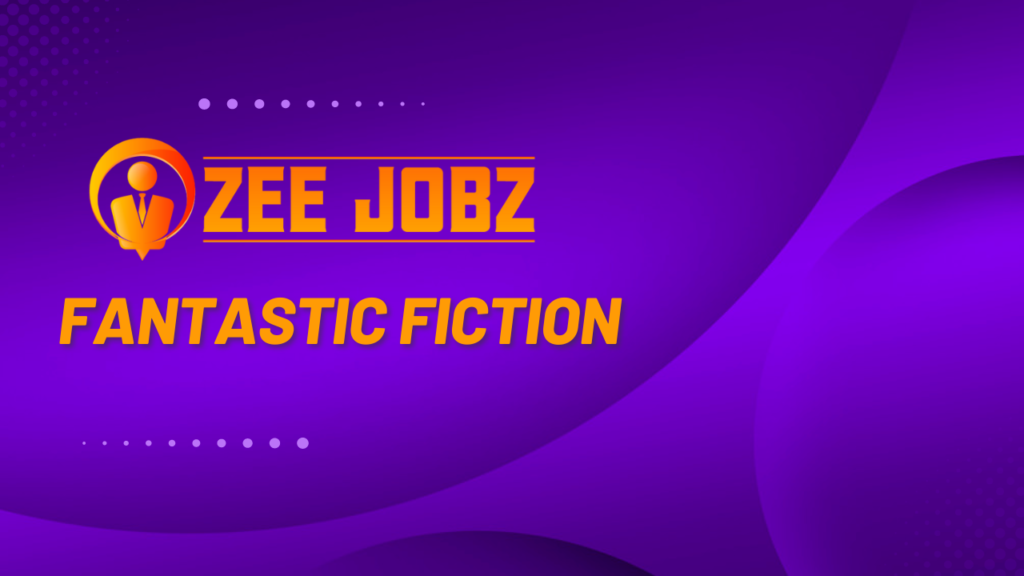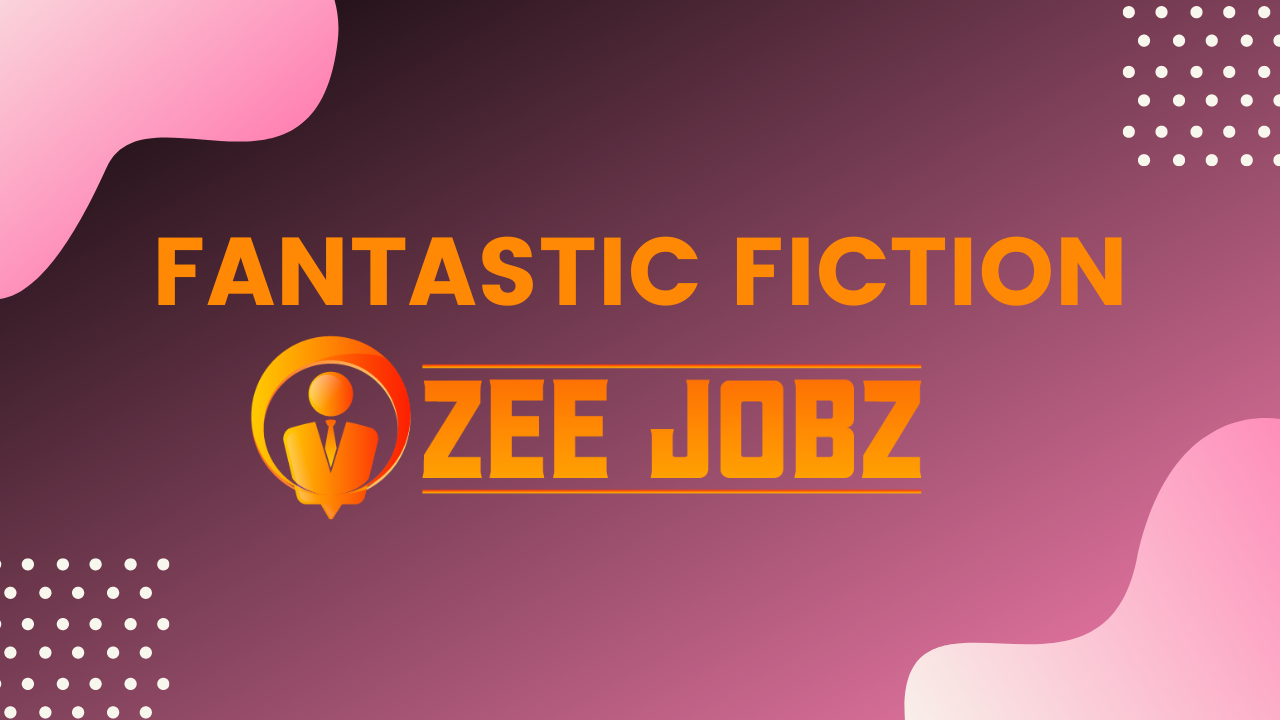Introduction to Fantastic Fiction
Fantastic fiction is a fascinating style that transcends the boundaries of truth and transports the reader to national states of magic, thriller and surprise. This style encompasses many narratives, from epic fantasy and legendary tales to science fiction and supernatural adventures. Fantastic fiction allows authors to explore themes and ideas outside the confines of the natural world, offering readers insight into inventive and conceptually terrifying testimonies. This article will delve into the various factors behind incredible fiction, its development, and its impact on literature and subculture.
The Beginnings of Fantastic Fiction
The roots of exceptional fiction can be traced back to historical mythology and folklore, in which accounts of gods, monsters, and magical creatures captivated audiences. These early stories laid the foundations of the style, mixing elements of the supernatural with ethical guidelines and cultural traditions. As literature developed, first-rate fiction found new expressions in medieval romances, fairy tales, and Renaissance epics. The genre’s rich history reflects humanity’s fascination with the unknown and the magical.
Defining the characteristics of Fantastic Fiction
Fantastic Fiction is characterized by using fantasy factors that go beyond the normal. These can also include magical powers, mythical creatures, altering reality, and futuristic technology. The style often explores themes of exactitude instead of heroism and exploration of the unknown. Unlike other genres, great fiction allows for the suspension of disbelief and invites readers to simply accept the fantastical elements as part of the story’s reality. This precise feature will enable authors to create vast and immersive worlds that project traditional perceptions.

The evolution of fantasy literature
Fantastic Fiction literature, a distinct subgenre of grandiose fiction, has significantly evolved over the centuries. From the mythological epics of historical cultures to the cutting-edge mythic novels of today, the genre has constantly adapted to reflect societal values and technological advances. Works by J.R.R. Tolkien and CS Lewis were seminal in the genre in the 20th century, organizing exaggerated myth as the dominant form. These authors’ richly detailed worlds and complicated characters set an end to deceptive literature, inspiring endless writers and readers.
Science fiction and its speculative nature
Science Fantastic Fiction, every other primary department of tremendous fantasy, explores speculative ideas primarily based on medical and technological improvements. The genre often imagines future societies, space exploration, and the moral implications of the latest technology. Science fiction, popularized by authors such as H.G. Wells and Isaac Asimov, requires readers of situations to reflect on clinical development capabilities. The speculative nature of the genre allows for thought experiments that challenge the limits of human expertise and imagination.
The role of magic and myth in Fantastic Fiction
Magic and deception are essential to the delusion style and serve as critical ingredients that distinguish it from other types of fiction. In mythic literature, magic often functions as an aid to regulations and legal guidelines that govern the universe, shaping the plot and the characters’ actions. On the other hand, myths provide a cultural and ancient background and enrich the narrative with archetypal themes and emblems. The interplay of magic and fantasy creates an experience of wonder and thriller, enchanting the reader and drawing them into the international space of the story.
Creatures of Absorbing Worlds
One of the hallmarks of cutting-edge Fantastic Fiction is the presentation of immersive and vividly accurate worlds. Authors of this genre invest enormous effort in creating a world, creating specific landscapes, cultures, and histories that serve as the background for its testimony. These worlds often operate according to their personal rules and good judgment, allowing readers to enter a massively one-of-a-kind real-world environment. The depth and complexity of these fictional universes allow for rich storytelling and the exploration of complicated themes.
The Hero’s Journey in Fantastic Fiction
The hero’s adventure is a common narrative form in great fiction that follows the protagonist’s transformation from an ordinary man or woman to a hero. This journey regularly brings a call to adventure, a war of words with challenging situations and a definitive overcoming of adversity. The hero’s journey serves as a metaphor for private boom and self-discovery, resonating with readers on a deep emotional level. Through the protagonist’s hardships and tribulations, cutting-edge fiction explores widespread themes of courage, sacrifice, and the search for justice.
The influence of fantasy fiction on popular culture
Fantastic Fiction has had a profound impact on popular culture, influencing various styles of media, including film, television, and video games. Iconic franchises like Star Wars, Harry Potter, and Lord of the Rings have transcended the boundaries of literature to become cultural phenomena. The enduring recognition of these stories underscores the genre’s ability to capture collective creativity and inspire creative expression. The influence of excellent fiction extends past pleasures, shaping fashion, art, and even political discourse.
Diversity of Themes in Fantastic Fiction
The themes explored in superfiction are as numerous as the genre itself. While many remember awareness of conventional issues of heroism and adventure, others delve into complex topics such as identity, power, and morality. Above all, science fiction regularly deals with contemporary social problems, using speculative situations to critique existing structures and endorse contingent futures. On the other hand, fantasy often explores the nature of reality and the boundaries between the mundane and the paranormal. This thematic diversity makes excellent fiction a flexible and dynamic style.
The intersection of fantasy and science fiction
While technological know-how myth and Fantastic Fiction are often considered distinct genres, they frequently intertwine and develop hybrid narratives that mix elements of each. This intersection allows for the exploration of complex stories that challenge genre conventions. For example, works like Frank Herbert’s “Dune” and Stephen King’s “The Dark Tower” series contain every myth and factor of technological know-how, creating a rich and multi-layered testimony. Mixing genres enriches great fiction’s storytelling possibilities and brings readers in readers ‘ sings and sudden experiences of women in fantasy fiction.
Women have played a significant role in the development and evolution of fantastic fiction as authors and characters. Pioneering writers such as Ursula K. Le Guin, Octavia Butler, and Anne McCaffrey pushed the boundaries of the genre, introducing new perspectives and challenging conventional gender roles. Their works regularly explore identity, power dynamics and social justice themes, offering nuanced and thought-provoking narratives. The portrayal of female characters in excellent fiction has evolved, with more complex and diverse representations of girls as heroines, leaders, and complex individuals.
The Future of Fantastic Fiction

The fate of incredible fiction is alive; the genre is constantly adapting and diversifying. Advances in technology, consisting of digital truth and augmented reality, provide new possibilities for immersive storytelling. The growing diversity of voices in the genre also brings new perspectives and stories to the fore. As society grapples with rapid technological and cultural change, first-rate fiction will continue to offer space for exploring the implications of these changes. The style’s ability to adapt and innovate ensures that it will continue to be a substantial and dynamic part of the literary landscape.
The appeal of fantasy fiction to readers
Fantastic fiction has a unique charm for readers, providing an escape from the ordinary and the danger of exploring the unknown. The genre’s ingenious elements and intricate narratives offer an experience of wonder and delight, inviting readers to lose themselves in richly strange worlds. In addition, great fiction often deals with everyday themes and existential questions and resonates with readers on a deeper level. The versatility and variety of styles allow it to satisfy a wide range of tastes and interests, making it accessible and appealing to a broad audience.
Criticism and controversy in Fantastic Fiction
Like any genre, great fiction is not without its critics and controversies. Some critics argue that the focus on the escapist style detracts from literary severe value, while others take issue with portraying the specific problems or characters. The depiction of race, gender and sexuality in brilliant fiction is a topic of debate, with discussions of inclusivity and diversity coming to the fore. Despite these criticisms, the style continues to thrive, with many authors and readers appreciating its ability to explore complex and hard-hitting ideas.
The role of publishers and platforms in the promotion of fantasy fiction
Publishers and structures performed a vital function in the merchandising and dissemination fantastic fiction. Traditional publishers, along with Tor Books, Gollancz, and DAW Books, have been credited with bringing influential fantasy and sci-fi works to a broad target market. These publishers often take risks with unconventional stories, allowing authors to explore innovative ideas within the genre. Beyond standard publishing, digital structures like Amazon Kindle, Wattpad, and Scribd have democratized access to great fiction. These structures allow independent authors to publish and distribute their work, reaching specific audiences and supporting multiple literary environments.
The influence of cover art and illustrations in Fantastic Fiction
Covers and illustrations play a significant role in the glamor and advertising of fantastic fiction. Visible factors often impact an e-book, setting the tone and evoking the story’s setting. The iconic covers and those designed by Michael Whelan and John Howe eventually became synonymous with the genre and influenced reader perception and expectations. In addition, illustrations inside books, especially in graphic novels and illustrated versions, enhance the storytelling experience by bringing fantastical elements to life. The collaboration between authors and artists creates a more prosperous and compelling international environment for readers.
The influence of fantasy fiction on other literary genres
Fantastic fiction especially inspired other literary genres, blurred the boundaries between them and led to the emergence of hybrid genres. Elements of myth and technological fiction have been integrated into literary fiction, thrillers or even romance novels. This movement genre enriches the literary landscape and provides readers with new and unexpected experiences. Authors such as Neil Gaiman and Margaret Atwood have effectively mixed super elements with literary prose, expanding works that transcend traditional genre constraints. This cross-pollination demonstrates the versatility of the style and its ability to appeal to a wide range of readers.
Ethical and moral issues in Fantastic Fiction
Fantastic Fiction often explores moral and ethical questions, using speculative situations to assign readers’ beliefs and values. The style provides a unique platform for discussing complicated issues, including synthetic intelligence, genetic engineering and environmental sustainability. By offering these topics in inventive settings, authors can look at the results of technological and social adjustments. Works like “Brave New World” by Aldous Huxley and “The Handmaid’s Tale” by Margaret Atwood provoke ideas and dialogue about moral dilemmas in their respective worlds. These stories encourage readers to reflect on the actual global consequences of comparable issues.
The psychological and emotional impact of Fantastic Fiction

Fantastic fiction has the power to evoke a wide range of feelings and evoke deep mental responses. The genre-bending exploration of everyday themes that include love, loss, and the struggle for identity resonates with readers personally. The immersive nature of excellent worlds allows readers to experience the characters’ emotions and challenging situations, fostering empathy and understanding. Moreover, the escape afforded by way of extraordinary fiction provides a temporary respite from reality and represents comfort and solace. The emotional and psychological effect of the style underscores its enduring appeal and relevance.
Representing diversity in Fantastic Fiction
Representation and diversity in extraordinary fiction have become increasingly important topics in recent years. The use of a specific demographic has historically dominated the genre. It is a movement towards inclusivity and the illustration of multiple voices. Authors from specific cultural, ethnic and gender backgrounds bring sparkling perspectives to the genre and enrich the narrative tapestry with new stories and messages. Works featuring many characters and exploring identification and belonging issues resonate with a broader audience and reflect our diverse world. The push for variety in excellent fiction is no longer the most useful. Still, it broadens the appeal of the style, challenges situations and expands the limits of narrative.
Conclusion: A lasting legacy of fantastic fiction
In conclusion, brilliant fiction is a style that constantly captivates and inspires readers with its ingenious and varied narratives. From mythological origins to modern manifestations, the style has evolved to embody a wide range of memories and themes. Fantastic fiction offers a unique space to explore the boundaries of reality and human experience, challenging readers to believe they have transcended the everyday. As the genre grows and adapts, its legacy will remain a testament to the energy of imagination and creativity in literature.



